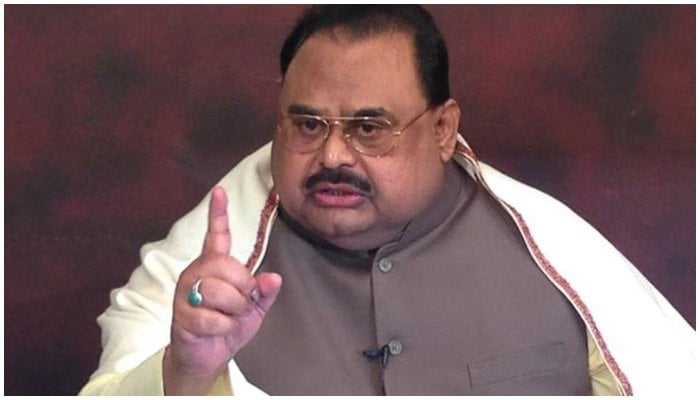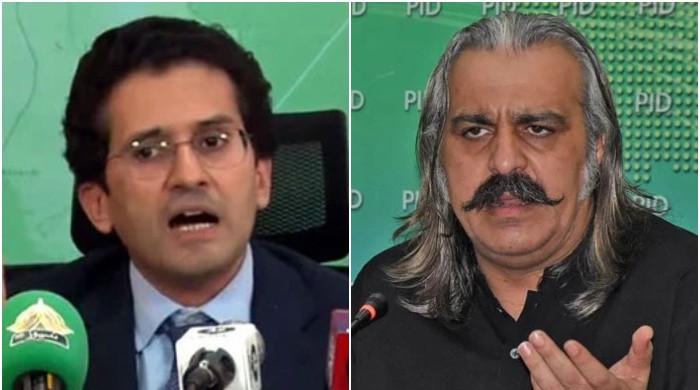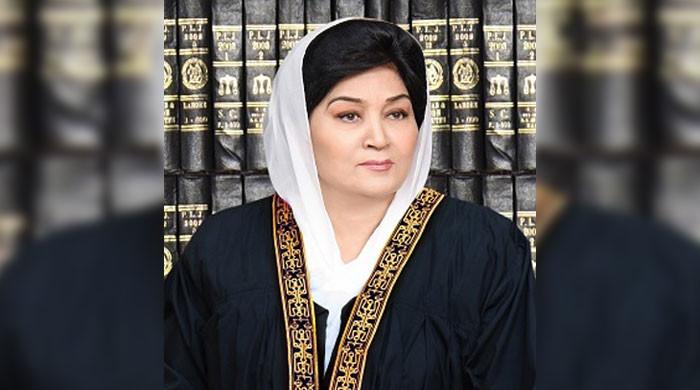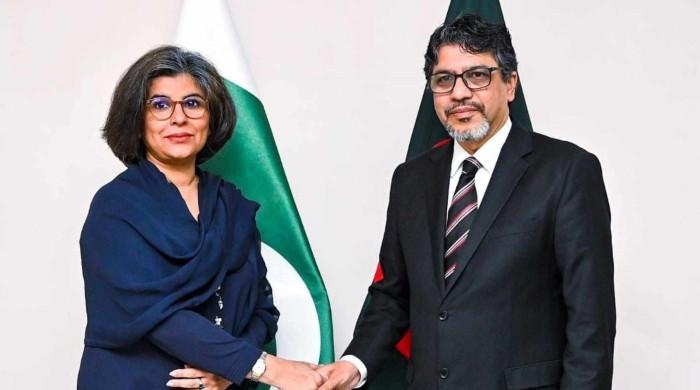MQM founder not a terrorist, defence lawyer tells UK court
Altaf Hussain’s politics is based on advocating the case of progressivism, women rights and empowerment of Muhajirs, lawyer tells court
February 12, 2022

- Defence lawyer tells the jury that Pakistan has a different language, different culture, a very different political context.
- Asks jury to read the exact words of Altaf Hussain from his speeches.
- Altaf Hussain's counsel says his client called for an end to migrant genocide in his speech.
LONDON: The Muttahida Qaumi Movement (MQM) leader Altaf Hussain’s defence lawyer Rupert Bowers QC has told Kingston Crown Court that Hussain is not a terrorist and should not be convicted of two counts of encouraging terrorism.
Putting up the defence in favour of Altaf Hussain, Rupert Bowers QC told the jury in his final address that they have heard from the prosecution that Hussain was involved in two counts of terrorism during his addresses on August 22, 2016 from London to Karachi but the jury should consider that the events took place not in the UK but in a different jurisdiction – Pakistan – and Hussain’s politics was based on advocating the case of progressivism, women rights and empowerment of Muhajirs of Pakistan.
He told the jury that Pakistan has a different language, different culture, a very different political context, a different experience and a very different way of how the state actors such as government, police and other state bodies act – completely different from how it works in the UK. The lawyer said that there is a different concept of rights, a different sense of law and order and how human beings are treated.
He said the jury has been asked by the prosecution not to measure Hussain’s case against the cultural yardstick of Pakistan but the yardstick of the law of England and Wales is not the same as the yardstick applies in the Pakistani context.
He told the jury that there was no doubt that Altaf Hussain published statements from London but the jury needs to consider whether his statements were likely to be understood by a reasonable person hearing them as direct/ indirect encouragement to commit the act(s) of terrorism.
He invited the jury to consider that the people listening to these speeches were a group of people in Karachi and “it’s not the reasonable person with the experience of living in southwest London with all freedoms, rights that we enjoy or have grown up with”.
He said: “You’re dealing with people in Karachi. Not just that, it’s the people in that tent listening to those speeches. The yardstick of Pakistan. You have to be careful to distinguish between statements made by Altaf Hussain, not what other people were shouting and you have to consider the culture that he grew up with, what he’s hearing coming back at him through the telephone.”
He asked the jury to consider what qualifies as terrorism and what it is the type of act, the design behind the act and the purpose of the act.
He incited the jury to read the exact words of Hussain from his speeches and “from the words he actually used in those speeches, you cannot be sure that if anything was encouraged that included violence to personal property”.
He told the jury that the Rangers and its head were not a section of the public. He told the jury that Hussain didn’t incite violence and didn’t do so for ideological or political objectives as alleged by the prosecution.
Rupert Bowers QC said it was the prosecution’s witness Dr Nichola Khan who told the court about the “endemic violence that exists in Pakistan, in Karachi” and that’s why the jury should, while applying the law to the actual facts of this case, should consider “what Hussain understood or intended, and what people understood”.
Rejecting the prosecution charge that violence happened as a result of Hussain’s speech, Rupert Bowers QC said that the MQ founder called for a protest against Geo, Samaa and ARY but boycotting of media is not violence and Hussain said that “it’s not the workers’ fault, it’s the bosses”.
Rupert Bowers QC said Hussain offered his apology the following day but that was an explanation and “not an admission of wrongdoing”.
Hussain’s lawyer concluded: “If violence ensued in the latter part of that day, you’ve seen it, he’s regretful of that. In my submission to you, he’s not a terrorist, and I ask you to acquit.”
The judge retired the jury on Friday afternoon to consider the verdict on two counts. Hussain has been charged with two counts of encouraging terrorism contrary to section 1(2) of the Terrorism Act 2006.
Hussain has denied both charges. The jury will return on Monday to resume deliberations and may announce a verdict anytime.
Originally published in The News











